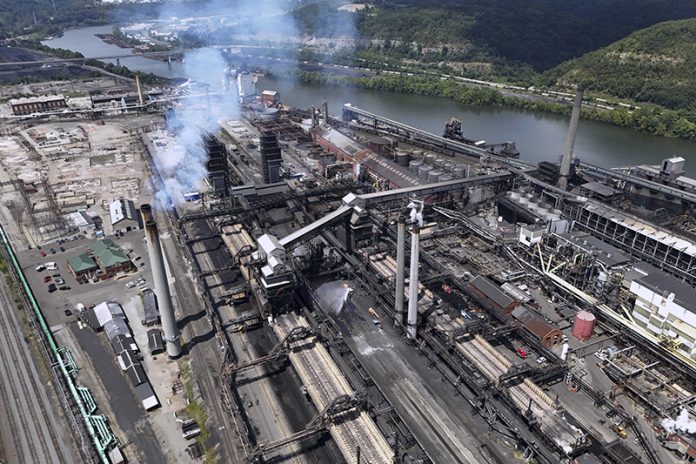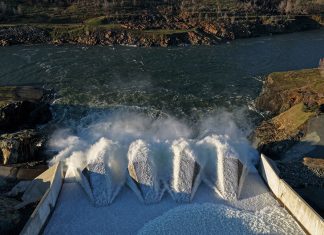
By MARC LEVY
Associated Press
HARRISBURG, Pa. (AP) — Preparations for a routine maintenance task may have led to an explosion at a U.S. Steel coal-processing plant near Pittsburgh that left two dead and sent 10 to hospitals, the company said Friday.
U.S. Steel said it developed the information, along with other investigators, from reviewing video footage and interviewing employees.
That has suggested to them that the explosion happened when workers were flushing a gas valve in preparation for a routine planned maintenance task, the company said.
The explosion, which heavily damaged part of the sprawling facility, started around a set of ovens where coal is baked to 1,200 degrees Fahrenheit (648.89 Celsius) into a more efficient carbon fuel called coke, a key component in steelmaking. A byproduct of processing the coal is a combustible gas called coke oven gas, made up of a lethal mix of methane, carbon dioxide and carbon monoxide.
“Pressure built inside the valve, leading to valve failure and coke oven gas filling the area and ultimately exploding when finding an ignition source,” U.S. Steel said.
U.S. Steel didn’t say why pressure built inside the valve or what was the ignition source. It said the investigation is in the early stages and that it will provide more information when it can. The United Steelworkers union, which represents workers killed and injured in the explosion, had no immediate comment.
The massive plant along the Monongahela River in Clairton is considered the largest coking operation in North America and, along with a blast furnace and finishing mill up the river, is one of a handful of integrated steelmaking operations left in the U.S.
The blast was so powerful that it sent a plume of black smoke into the sky, shook the ground and was heard by some people a mile or more away. It took hours to find two missing workers, one dead and one alive, beneath charred wreckage and rubble.
The Clairton plant is nearly 110 years old. Japan-based Nippon Steel finalized its acquisition of U.S. Steel in June, winning President Donald Trump’s approval after he reversed then-President Joe Biden’s decision to block it.
To change Trump’s mind, Nippon Steel boosted its commitment to invest money into U.S. Steel’s aging plants and gave the federal government a say over some matters involving domestic steel production.















